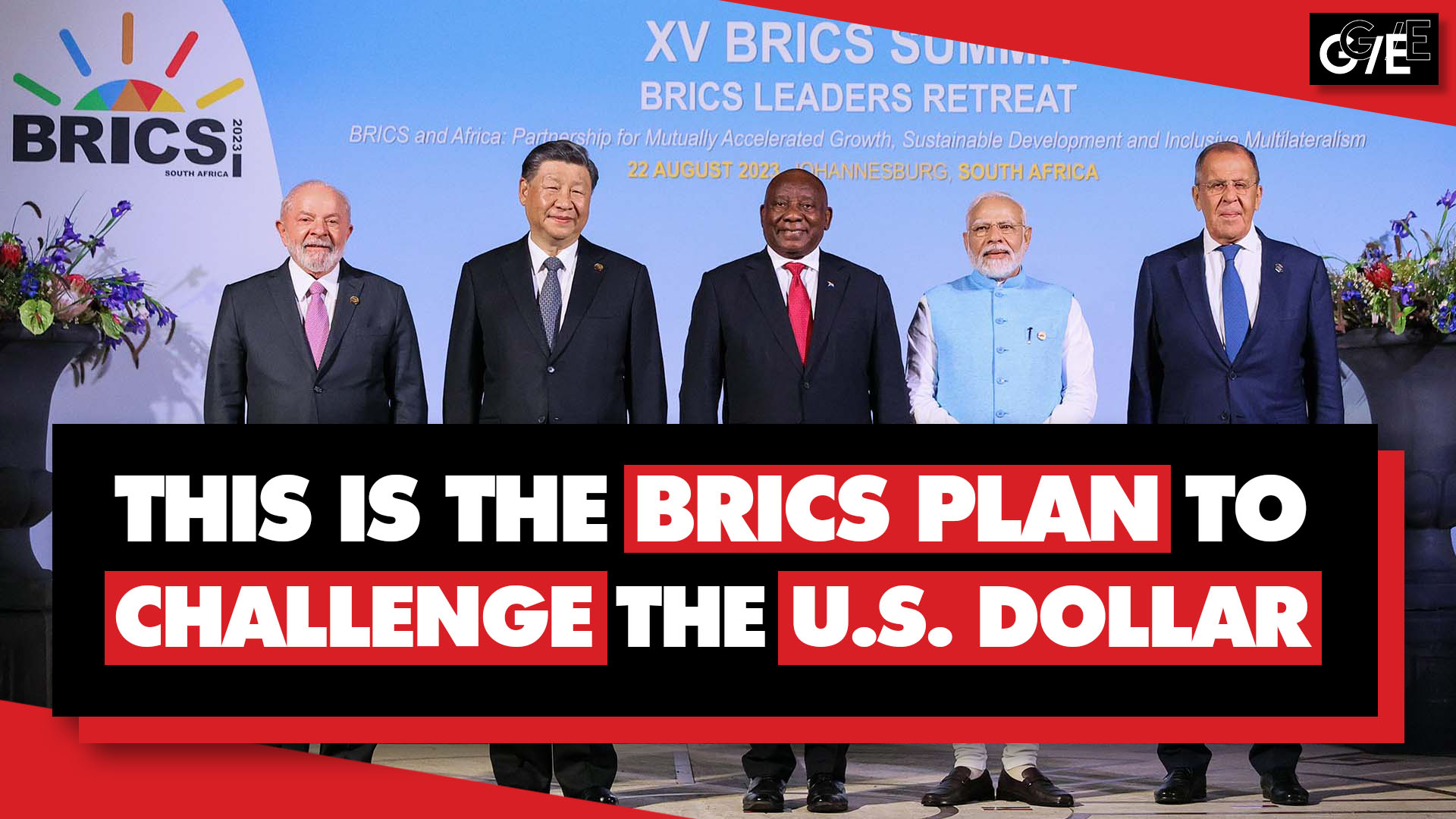The BRICS Cross-Border Payment Initiative (BCBPI) will use national currencies, instead of the US dollar. Russia’s finance ministry and central bank released a report detailing plans to transform the international monetary and financial system.
As the chair of BRICS for 2024, Russia proposed the creation of a BRICS Cross-Border Payment Initiative (BCBPI), in which members of the organization will use their national currencies to trade.
BRICS will likewise establish an alternative messaging infrastructure to circumvent the SWIFT system of interbank communication, which is overseen by the United States and subject to Western unilateral sanctions.
There are also plans for the establishment of a BRICS Grain Exchange and associated pricing agency, with centers for trade in commodities like grain, oil, natural gas, and gold, which can likewise be used to settle trade imbalances.
These proposals were outlined in the report “Improvement of the International Monetary and Financial System”, which was co-authored by the Ministry of Finance of the Russian Federation, the Bank of Russia, and the consulting firm Yakov and Partners.
In February 2024, the finance ministers and central bank governors of BRICS met in Sao Paulo, Brazil. There, the Russian representatives said they would prepare a report “for BRICS countries’ leaders with a list of initiatives and recommendations on ways to improve the international monetary and financial system”.
Russia’s Finance Minister Anton Siluanov explained the motivation:
“The current system is based on existing Western financial infrastructure and the use of reserve currencies. It is severely flawed and is increasingly used as a tool of political and economic pressure. Another reason for a reform of the international monetary and financial system is the geo-economic fragmentation that became a result of the abuse of trade and financial restrictions.”
The Russian BRICS chairmanship report argued that the international monetary and financial system (IMFS) is not only unjust but also inefficient, as it is a monopoly that suffers “from excessive reliance on a single currency and centralized financial infrastructure”.
The document noted that the “current IMFS is primarily serving interests of AEs” (advanced economies) – that is, largely the wealthy countries of the West.
As of 2023, the original five BRICS countries make up 32% of global GDP (measured at purchasing power parity, PPP), but have only 13.54% of voting shares in the IMF.
On the other hand, the G7 nations hold 41.27% of the voting shares in the IMF, despite the fact that they comprise just 30% of global GDP (PPP).



This would be an massive undertaking. I’d expect it to take decades before it starts getting any results.
I mean we can already see the results today with Russia and China doing all their trade outside the dollar, and China increasingly doing currency swaps with other countries now. The dollar based economy is already shrinking as a result, and on top of that the US no longer has visibility into trade that’s happening globally the way they used it. For example, a lot of predictions of China’s economy slowing down was based on reduced imports from western countries using SWIFT system, but now we know that China was simply redirecting its trade away from the west and towards the Global South.
It will certainly have some immediate effects, but the actual breaking down of dollar hegemony will definitely take upwards of a decade…which is still fast in terms of geopolitics time. Unfortunately for the global south, the effects that will accelerate their liberation will fall towards the later ends of this timeframe.
It’s difficult to say how this plays out. It certainly could take up to a decade, but we may see a lot of rapid changes early on as well. With regards to the Global South I expect the effects are going to be fairly immediate because China is the country that’s helping Global South develop and build out infrastructure. The west is becoming largely irrelevant to the global majority because it’s not actually producing much of anything that people need.
This is actually why I say those effects will take a while for the global south. Construction projects usually take years before their utility is realized. In the meantime, there is no alternative to the dollar for the global south. They cannot oppose unilateral sanctions yet, nor can they organize against US imperialism.
I’ve been pleasantly impressed by the rate of progression in recent years, but I’m not getting my hopes up for an early miracle. I’ll pray for the collapse of the dollar, but my bet is on 10-20 years before the US cannot wield their economic posture as a weapon against most of the world.
Construction projects require workers and stimulate the economy as a result, so the benefits appear even before they’re completed. And there absolutely is an alternative to the dollar for the global south today because both Russia and China trade outside the dollar right now. The BRICS is offering a tangible bulwark against US imperialism and we can see the effects of that today. This is all happening as we speak.
i hope it doesnt. a dollar crisis will wipe us the fuck out.